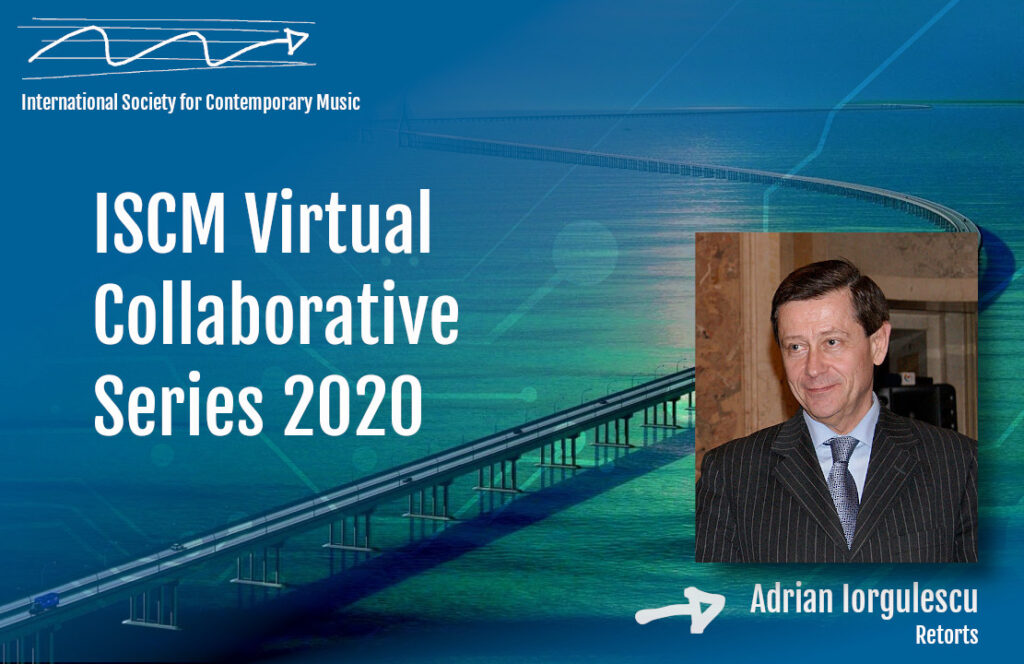Adrian Iorgulescu: Retorts

Adrian Iorgulescu (born 1951, Bucharest) studied composition at the Bucharest Conservatory, where he subsequently took his M.A. In 1990, he was awarded a PhD in Musicology. The same year, he started teaching composition and musical forms at the National University of Music, Bucharest, and since 1994 he has supervised doctoral theses. In 2016, the Kishinev Academy of Music, Theatre and Plastic Arts awarded him the title of Doctor Honoris Causa. From 1990 to 1992, he was vice-chairman of the Union of Romanian Composers and Musicologists, and since then has been elected chairman for successive mandates. From 2005 to 2008, he was Minister of Culture. Adrian Iorgulescu’s work as a composer is extensive. His opuses include five symphonies, instrumental concertos, five string quartets, three cycles of lieder, symphonic and chamber pieces, choral works, film music, and the opera Revulution, based on Ion Luca Caragiale’s play Mr Leonida faced with the Reaction.
For his artistic achievements, he has been awarded the Prize of the Union of Composers multiple times, the Romanian Academy Prize, and the World Music Celebration Prize for Composition (Louisville, U.S.A.). He is one of Romania’s most eminent composers, a towering landmark of contemporary music. His works both innovate in their language and recoup traditional forms and genres, upon which he places his own stylistic mark, recognisable for its minimalism, discernible at the level of the acoustic material selected for the construction of the musical discourse and for their contrasting structures and expressions, with dualities able to acquire archetypal, symbolic dimensions.
The title for Iorgulescu’s 2018 flute and piano duo Retorts itself suggests a rather blunt musical development between the two performers, based on short, cutting, sharp dialogue more than mutual support. The conversation/argument starts and keeps coming back to the same five generative motifs, that are transformed in various combinations; among them, one can recognize allusions to the lyric theatre (Verdi’s La Traviata and Die Fledermaus by Johann Strauss) as well as a jazz fragment. The apparent incongruence between these sources, as a modus operandi, causes neither a discursive incoherence, nor a formal dispersion. On the contrary: this type of structural organization contributes to the creation of a dramaturgy that is both logic in its continuity and discontinuity, but, at the same time, unpredictable, exciting, vivid. In addition, I have to point out the large expressive palette offered to the musicians that combine, in a theatrical type of succession, lyric, ironic or dramatic elements, as well as an often virtuosic performance.
Performed by Matei Ioachimescu (flute) and Alfredo Ovalles (piano)
